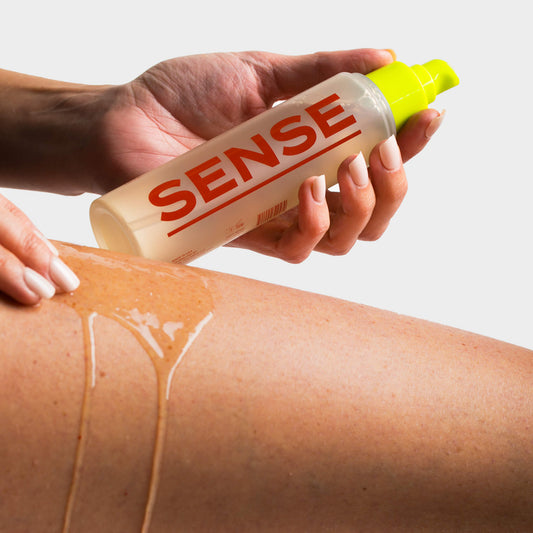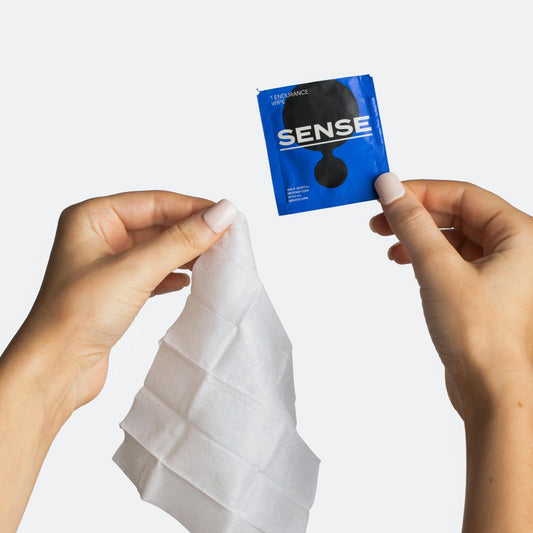
Understanding Premature Ejaculation: Causes, Solutions, and Management Strategies
Understanding Premature Ejaculation: Causes, Solutions, and Management Strategies
Struggling with premature ejaculatio can make intimate moments stressful rather than satisfying. You’re likely looking for clear causes and practical solutions. This no-fluff article provides an understanding of why premature ejaculatio happens and how to manage it, ensuring you can approach treatment and improve your sexual well-being with confidence.
Key Takeaways
-
Premature ejaculation is characterized by the inability to control ejaculation typically occurring within 1-2 minutes of penetration, causing significant distress and not resulting from other medical issues or severe relationship discord.
-
Treatment for premature ejaculation can involve a combination of behavioral techniques, medical therapy including SSRIs and topical anesthetics, and counseling to manage both the psychological and relational aspects of the condition.
-
Improving sexual function and coping with premature ejaculation also includes open communication with partners, relationship or sex therapy, preventative strategies like pelvic exercises, and exploring alternative forms of sexual play.
Defining Premature Ejaculation
Imagine this: It’s your anniversary. The lights are dim, the mood is right, and you’re looking to share an intimate moment with your partner. But, within a minute or two of penetration, you feel the sensation of reaching climax. The moment ends sooner than either of you desired, leaving a lingering sense of unease. This scenario is a common experience for those with premature ejaculation, also known as early ejaculation, a condition characterized by the inability to control ejaculation, often occurring within 1-2 minutes of penetration.
Premature ejaculation transcends mere timing. It is defined by the American Psychiatric Association as a prevalent sexual dysfunction, leading to individuals reaching orgasm sooner than intended by them or their partners. To meet the criteria set by the Diagnostic and Statistical Manual of Mental Disorders (DSM-5), ejaculation must occur within approximately 1 minute following vaginal penetration, before the individual wishes it, and happens during most sexual encounters for at least six months. These symptoms must lead to significant distress and not solely arise from other medical conditions, drug side effects, or severe relationship discord.
Grasping these definitions paves the way towards recognizing the experience of premature ejaculation. It extends beyond mere numerical facts to encompass the distress caused, its impact on sexual pleasure, and consequential effects on relationships.
The Scope of the Issue
Contrary to an isolated issue, premature ejaculation is a prevalent condition among sexually active men. Around 30% of men aged between 18 and 59 are affected, and some studies indicate that the rate may reach up to 75% among adult men.
These numbers highlight the need for open discussions, understanding, and effective strategies to manage this widespread issue.
Unraveling the Causes
What are the causes of premature ejaculation? Why is it so prevalent among men? These questions do not have a uniform answer. Premature ejaculation is a multifaceted issue impacted by a diverse range of psychological and physical factors.
Psychological factors, such as stress, anxiety, and depression, often contribute to premature ejaculation. Imagine being under constant pressure at work, feeling anxious about meeting deadlines, and then carrying this stress into your bedroom. This pressure can interfere with your ability to control the ejaculatory reflex, leading to premature ejaculation. Further, conditions like anxiety and depression in themselves can lead to premature ejaculation, adding another layer of complexity to the psychological landscape.
However, the mind isn’t the only contributor. Physical factors, including conditions like hyperthyroidism, also contribute to the onset of premature ejaculation. Hence, determining the causes of premature ejaculation resembles the disentangling of a complex, intertwined web of factors.
Diagnosis and Understanding
Understanding premature ejaculation is a journey that begins with self-awareness and leads to getting premature ejaculation diagnosed. The road to diagnosis does not rely on specific tests but involves a thorough evaluation by health care professionals.
During this process, emphasis is placed on understanding the patient’s sexual history, including instances of premature ejaculation and overall medical history. No specific laboratory or radiographic tests are necessary unless an underlying health condition is suspected. The key to diagnosis lies in the understanding and communication of one’s sexual experiences and concerns.
Treatment Modalities for Premature Ejaculation ->
Following the acknowledgment and diagnosis of premature ejaculation, the subsequent step involves exploring treatment options. Tailoring a treatment plan often necessitates a synergistic approach, combining various methods for effective management, with premature ejaculation treated successfully in many cases.
These methods fall into three main categories: behavioral therapy, medical therapy, and relationship/sex therapy. Let’s delve deeper into each of these treatment modalities and how they can help manage premature ejaculation.
Behavioral Therapy
Let’s start with behavioral therapy, a treatment modality that’s all about learning new skills and strategies. Behavioral techniques, such as the stop-and-start or squeeze methods, aim to assist individuals in learning how to control their body and feelings to delay ejaculation and improve the relationship.
Think of it as learning to pace yourself during a long race. The stop-and-start method involves stimulating the penis until the point of imminent orgasm, then stopping for 30 seconds before resuming. The squeeze technique, on the other hand, involves squeezing the penis just below the head to decrease arousal.
There are also additional behavioral strategies that can aid in delaying ejaculation, such as:
-
Masturbating a few hours before intercourse
-
Taking deep breaths to temporarily inhibit the ejaculatory reflex
-
Exploring different sexual positions
-
Pausing during intercourse to distract oneself
-
Thinking about non-sexual things
These strategies can help prolong sexual activity and delay ejaculation.
Medical Therapy
Next, let’s consider medical therapy. You might be thinking, “Is there a pill that can help me delay ejaculation?” The answer is yes, certain medications can delay orgasm and alleviate premature ejaculation symptoms.
Selective serotonin reuptake inhibitors (SSRIs) are often the initial drugs of choice for treating premature ejaculation due to their ability to delay orgasm. SSRIs such as paroxetine, escitalopram, and sertraline are used off-label to treat premature ejaculation, exploiting the side effect of delayed orgasms.
When SSRIs are not effective, alternative medications such as clomipramine or tramadol may be prescribed. However, these medications may cause side effects, which is why the lowest effective dose is recommended.
In addition to oral medications, topical anesthetics can also be used to lessen sensitivity of the penis and prolong the time before ejaculation. For this, we recommend our Endurance wipes made with benzocaine which are assured to delay ejaculation and improve sexual intimacy.
Relationship and Sex Therapy
Now, let’s explore the world of relationship and sex therapy. Dealing with premature ejaculation is not just about the individual; it also involves navigating relationship dynamics and addressing psychological issues. Professionals such as psychiatrists, psychologists, or certified sex therapists can provide dedicated support for psychological issues related to premature ejaculation and advise on enhancing relationship dynamics through sex therapy.
Couples therapy can be beneficial for those in long-term relationships and for addressing relationship problems that may be causing or exacerbating premature ejaculation. Counseling can help:
-
Identify and improve underlying psychological issues
-
Potentially ease anxiety and other problems linked with premature ejaculation
-
Lead to improved sexual confidence and intimacy
The integration of counseling with drug therapy has shown to be beneficial in managing not only premature ejaculation but also helping to treat erectile dysfunction, addressing not just the physical but also the emotional and relational impact of the condition on both partners.
Coping with Complications
Premature ejaculation can instigate substantial psychological distress, diminished self-esteem, anxiety, and reduced libido. It can act as a persisting shadow, casting doubts on one’s self-worth and ability to satisfy their partner. The shame, anger, and embarrassment often prevent affected individuals from discussing their condition, thus impacting intimate relationships and sometimes leading to detachment from partners.
But it doesn’t have to be this way. Open communication with a partner is essential in dealing with the emotional fallout of premature ejaculation and helps in maintaining intimacy. Speaking openly about the issue can alleviate some of the anxiety and shame associated with premature ejaculation, making it easier to address it as a team.
In addition to open communication, relationship counseling, and consultations with mental health providers specialized in sexual problems, seeking a treatment for premature ejaculation can aid significantly in coping with the personal and relational challenges caused by this issue.
Preventative Strategies
Management of premature ejaculation extends beyond treatment to incorporate prevention. Pelvic floor exercises, alternatively called Kegel exercises, can fortify weak pelvic floor muscles pivotal to sexual performance, potentially aiding in delaying ejaculation.
In addition to physical exercises, incorporating stress reduction techniques and using non-verbal communication to express sexual interest can help minimize performance anxiety, cultivating a more relaxed environment that may prevent premature ejaculation.
Enhancing Sexual Function Beyond Treatment
Although treatment remains pivotal, sexual wellness encompasses more than just managing premature ejaculation, male sexual dysfunction, and sexual dysfunctions. Enhancing one’s sex life extends beyond treatment and sexual intercourse, inviting exploration of diverse types of sexual play and fostering connections with partners in unconventional ways to ease performance pressure.
Focusing on forms of sexual play other than intercourse can help reduce the performance pressure associated with premature ejaculation, allowing for a more relaxed and enjoyable sexual encounter. Some alternative forms of sexual play to explore include:
-
Oral sex
-
Manual stimulation
-
Mutual masturbation
-
Sensual massage
-
Using sex toys
Exploring these other ways to connect with your sexual partner can enhance sexual function and satisfaction while managing premature ejaculation.
Self-regulation techniques such as masturbating a few hours before intercourse can also be beneficial. This technique can increase the amount of time before ejaculation during sex, providing a greater sense of control and confidence.
Navigating Relationship Dynamics
Premature ejaculation transcends an individual’s journey, extending its impact to both partners. Communication emerges as the linchpin in navigating this journey. Open dialogue about premature ejaculation is essential for couples to address the issue effectively.
Partners can assist individuals experiencing acquired premature ejaculation by helping with strategies for controlling ejaculation. However, this condition can lead to impaired quality of life, sexual dissatisfaction, and interpersonal difficulties.
That’s where relationship counseling or sex therapy comes in. These services can be beneficial for addressing the impact of premature ejaculation on relationships and can provide strategies to maintain intimacy and navigate the challenges together.
Summary
We’ve taken a deep dive into the world of premature ejaculation, from understanding its definition and prevalence to exploring its causes, diagnosis, and treatment options. We’ve learned that premature ejaculation is a common condition that can significantly impact relationships and self-esteem, but it’s not an insurmountable hurdle.
With various treatment modalities, preventative strategies, and ways to enhance sexual function beyond treatment, individuals experiencing premature ejaculation can regain control of their sexual lives. Remember, the journey to understanding and managing premature ejaculation begins with self-awareness and open communication.
Frequently Asked Questions
What exactly is premature ejaculation?
Premature ejaculation is a sexual dysfunction where a person can't control ejaculation, often happening within 1-2 minutes of penetration, leading to distress and relationship problems.
How common is premature ejaculation?
Premature ejaculation is a common condition, affecting approximately 30% of men between 18 and 59 years old, with some reports suggesting that as many as 75% of adult men might be affected. It's more widespread than many people realize.
What causes premature ejaculation?
Premature ejaculation can be caused by psychological factors like stress, anxiety, and depression, as well as physical conditions such as hyperthyroidism. These factors can contribute to early ejaculation during sexual activity.
What treatment options are available for premature ejaculation?
Treatment options for premature ejaculation include behavioral therapy, medical therapy, and relationship/sex therapy. A multimodal approach is often required for effective management, as well as products like our Sense Endurance wipes.
How can I enhance sexual function beyond treatment?
You can enhance sexual function beyond treatment by exploring other types of sexual play, connecting with your partner in alternative ways, and using self-regulation techniques. These methods can enhance sexual function and satisfaction while managing premature ejaculation.







